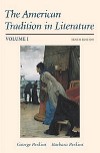Tennessee Williams was the heir to the innovations in staging that Eugene O'Neil brought to American theater two generations earlier. Imaginative sets, abstractions, complex lighting sequences, a fluid use of the stage itself for shifting scenes of action-all are features that Williams incorporated into his own productions to create his expressionistic effects. As a "memory play," The Glass Menagerie reflects an adaptation of expressionism come to the stage-the dependence upon feelings to interpret the human condition. The essential conflict is a yearning for stability, best expressed in Amanda's reconstructed and reconstituted past, set against a stream of inconsequential and futile acts that take up time and space of their lives, but which get nowhere-Amanda's meager attempts to sell magazines, Tom's monotonous work at the warehouse, and Laura's incessant devotions to her glass "menagerie." To learn more about these and other key concepts, please consult the Glossary of Key Concepts. |



 2003 McGraw-Hill Higher Education
2003 McGraw-Hill Higher Education